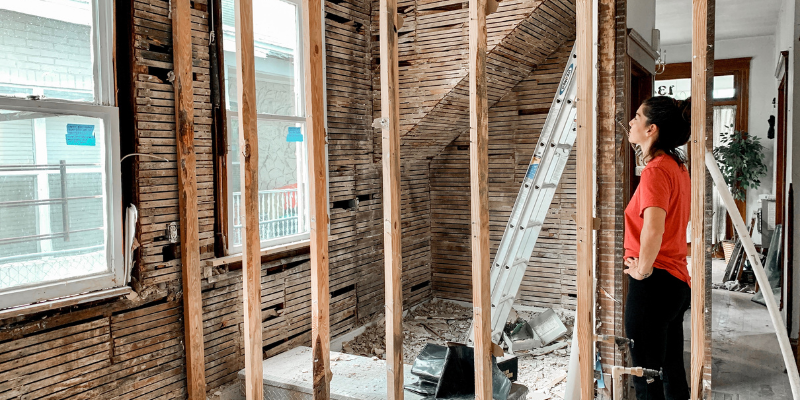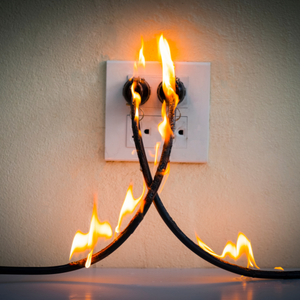
Selling a home with code violations in North Carolina can be difficult, but it is not impossible. It can be anything from structural problems to old wiring or other issues that have been flagged. Zack Buys Houses provides this guide to help homeowners navigate these challenges. It highlights constructive ways to identify and target violations while still selling your home. Learn which steps to take professionally to assess risks, which repairs can be addressed with code-compliant alternatives, and which issues might represent a loss or an advantage. Our goal is to help you sell your home for a value that reflects market conditions, even when facing difficult or marginal property conditions.
Understanding Code Violations in North Carolina
Understanding the issues related to code violations in North Carolina can be quite difficult for homeowners who are considering selling their houses. Knowing these common issues and how they relate to North Carolina specifically is essential for a hassle-free selling experience. Different code violations can have varying impacts on your home’s marketability. Here, we will address the types of violations home sellers may experience, the different ways they can affect the selling process, the probable challenges they will pose, and the best choices for the seller in order to have a successful sale. This will help in better preparation and will position the seller in a more advantageous way in strategizing for the sale.
Common Types of Code Violations

Across North Carolina, homeowners face many different potential code violations that can complicate the selling process. One major type of violation pertains to safety, such as outdated electrical systems, structural shortcomings, or fire safety issues, any of which can cause the property to fail the requisite inspections and impede the selling process. Another common violation is zoning, which often occurs due to renovations or alterations made without permits or in violation of local laws. Environmental issues, such as improper waste disposal and inadequate erosion control, can lead to local government fines and additional complications in the selling process.
Property maintenance violations, which may include broken windows, leaky roofs, inoperable plumbing, dysfunctional HVAC systems, and other maintenance issues, often come to light during the selling process and can discourage buyers. Early intervention to fix code violations will reduce the likelihood of surprises on the selling day and will improve the overall marketing of the property. For homeowners in North Carolina, the provision of prompt repairs, as well as open compliance with selling and marketing regulations, will enhance buyer confidence and provide for a smoother and more efficient process overall, especially for those looking to sell a hoarder home and navigate its unique challenges organically.
How Code Violations Affect Your Selling Process
How are code violations impacting North Carolina homeowners when selling a home? Most of the time, violations devalue a home because buyers calculate the price of repairs or the cost of permits, and how long the repairs will take. Moreover, homes with violations attract a very small number of potential buyers, spend a long time on the market, and are likely to receive low offers. Buyers needing financing are restricted, as lenders will refuse to finance properties that are not compliant with code, leaving sellers with a pool of buyers who are cash purchasers. Sellers can face a lot of unnecessary issues if code violations or repairs are not completed in a timely manner, such as permits not being acquired beforehand.
Not revealing existing violations can legally leave sellers liable for contracts being rescinded or even lawsuits. North Carolina disclosure laws state that sellers must inform buyers about any issues that could impact the safety or value of the property. Legally required transparency can be a negotiating boon, as sellers can turn potential buyers into allies. Sellers who want to sell without making repairs can work with a reliable cash home buyer, since these buyers frequently acquire properties as-is. Sellers can sell without the time, hassle, or costs of making repairs or updating a home to code. The sale can still be completed successfully.
Evaluating the Impact of Code Violations on Property Sale
Homeowners in North Carolina who choose to sell their property with code violations must weigh various legal and financial consequences. Properties with code violations tend to lose a significant amount of market value due to buyers’ perception of the violations and potential costs to remedy them or the risk of noncompliance. In some instances, traditional financing may be impossible, and thus, buyers are likely to be only cash buyers. Knowing how violations affect value and demand is key to deciding whether to make the repairs or sell as is.
In addition to financial consequences, code violations have legal implications that can directly affect your home sale. If you’re looking to sell your home for cash in Concord or nearby cities, understanding North Carolina’s disclosure laws is essential. The state requires sellers to disclose any known defects or code violations, and failure to do so can result in serious legal and financial repercussions. Conducting a detailed property inspection and consulting with local authorities will help identify violations and clarify the corrective steps needed. By addressing or properly disclosing these issues, you not only comply with state law but also build buyer confidence, creating a smoother, more transparent transaction process.
Assessing the Market Value Implications
Evaluating code violations and their influence on the market value of a property is crucial for North Carolina homeowners intending to sell their property. The extent to which these violations influence buyer interest and price is determined to a great extent by the severity and visibility of the violations. Significant violations will decrease potential buyers’ estimations of a home’s market value, as buyers evaluate the possible costs and risks of repairs. Conversely, the impact of minor problems or violations of a purely cosmetic nature (like outdated finishings, small additions with missing permits, etc.) is likely to be much less if sellers are frank and prepared to compromise regarding the price and terms of repairs.
Local market context and other comparable properties serve to assess the property’s condition to support the seller in setting a reasonable price that is likely to sell. Estimating value adjustments and anticipating buyer expectations is possible through property comparisons with similar, compliant homes. Sellers may want to complete a presale inspection to make their decision as to whether to improve a property in violation of code or sell it as is, since it will clarify repair estimates and identify violations. This straightforward approach, along with realistic pricing, fosters buyer confidence, likely resulting in a fast sale.
After assessing property conditions and getting inspections, homeowners can effectively address market value implications due to code violations with these strategic steps:
- Research local building codes to understand specific violations affecting your property.
- Prioritize repairs based on severity and potential impact on property value.
- Hire licensed contractors to ensure code compliance during repairs.
- Document all repairs and maintain records of improvements for potential buyers.
- Engage in open communication with prospective buyers about current and past code violations.
- Consider offering a home warranty to reassure buyers about the property’s condition.
- Pursue a pre-sale home inspection to identify and address remaining issues.
- Explore negotiation tactics, such as reducing the sale price, to address unresolved violations.
Implementing these strategies can mitigate the impact of code violations, enhancing property appeal and facilitating smoother transactions.
Determining Potential Legal and Compliance Issues
Each potential code violation must warrant attention when considering a sale in North Carolina. The seller must comply with statutory and regulatory obligations pertaining to code violations, and failure to comply with these may result in considerable legal issues long after the sale. Escaped violation disclosure will trigger legal battles under North Carolina’s disclosure and due diligence laws, even though the seller arguably complied with the law.
In any case, identifying compliance issues will enable the seller to assess the likelihood and practicality of addressing compliance problems before listing. Zoning issues may require time, legal mechanisms, or a restorative permitting process to resolve, while safety issues, including dangerous electrical systems or plumbing issues, must be addressed quickly to mitigate legal and safety risks.
Financially induced reasons may stimulate a decision to avoid remediation. In such a case, full disclosure on code violations will save any issues in compliance and violation of bad faith, especially in transactions likely to involve cash or ‘as is’ buyers. However, strategic evidence of known issues in the sale will mitigate legal issues anticipated in any sale. Offering strategic evidence of and arguing issues will save the seller considerable time and reputation by crafting a dismissal in litigation.
Does the Homeowner Need to Fix Code Violations in Order to Sell?
In North Carolina, homeowners frequently face the decision of whether to remedy code violations prior to selling their property. Gauging the situation allows for the most beneficial decision to be made. Although these corrections may increase the property’s attractiveness, the necessary repairs may be impractical financially. This part of the text deals with the advantages and disadvantages of remedying the violations before selling the property and selling the property to cash buyers. Cash buyers, for instance, are less likely to be concerned with code violations.
Pros and Cons of Addressing Violations Before Listing
Addressing code violations prior to putting your North Carolina home on the market can be a double-edged sword. For one, resolving these issues can improve marketability. Safety and structural code violations like faulty wiring and inadequate fire safety can be resolved, improving a home’s appeal and possibly increasing offers from buyers. Also, fixing violations can speed the sale, since buyers tend to use code issues as the primary leverage point to negotiate downward to a seller’s desired price.
That being said, the consequences of violations need to be carefully considered. Repair costs can be a significant concern, particularly with complicated or numerous violations. Clients may find themselves overspending in relatively low-value situations, given the cost of time. Moreover, some violations, such as zoning, may be particularly time-intensive to fix. Obtaining the necessary permits or approvals from local entities to address unauthorized built additions can also complicate the situation. Homeowners must balance their situation with all the possible consequences and the sale price. The decision to fix violations prior to listing must be aligned with the seller’s overall position of value maximization relative to cost, risk, and ease of execution.
Exploring the Option of Selling to a Cash Home Buyer

Selling a home with significant code violations to a cash home buyer can be a reasonable solution for North Carolina homeowners. As homes for cash sale are bought “as is,” homeowners avoid selling a home for which significant repairs and compliance work will have to be completed. This can be important to homeowners under financial distress, expected to sell under tight timelines, or to sell to avoid foreclosure. The benefits of cash sales arise from avoiding traditional selling steps, which include inspections, appraisals, and lenders, thus making the process of selling faster. The seller saves time and distress and transfers ownership with no obligations remaining under the code.
If you’re looking to sell your home for cash in Kannapolis or nearby cities, a quick cash sale can be an ideal solution for homeowners seeking speed and convenience. Cash transactions are typically completed much faster than traditional sales, allowing sellers to close in a fraction of the usual time. While cash offers often come in below market value, they provide immediate liquidity and relieve sellers of lengthy negotiations or financing contingencies. It’s important, however, to partner only with vetted and reputable buyers to avoid predatory offers. When handled properly, selling for cash offers a practical and efficient path forward, especially for those in distressing or time-sensitive situations, ensuring a smooth and manageable transaction.
Full Disclosure: Do Sellers Need to Disclose Code Violations?
Dealing with home sales in North Carolina with code violations requires careful attention to the laws and honest communication with buyers. Noting the violations, which makes the seller legally compliant, builds trust with buyers and, in turn, makes the transaction seamless. For the seller, North Carolina’s laws regarding disclosure will prevent prospective legal issues and avoid opaque selling processes. At the same time, remaining calm and open to buyers’ concerns is the best way to alleviate their anxiety and smooth negotiations. These concerns motivate the writing of this section, which aims to help home sellers with both.
| Aspect | Key Point | Impact | Recommendation |
|---|---|---|---|
| Legal Requirement | Mandatory disclosure of known code violations by the seller | Opportunity for the buyer to negotiate repairs or price | Conduct a thorough inspection and report all issues |
| Communication | Maintain transparency with potential buyers | Builds trust and reduces post-sale disputes | Provide clear documentation and be available for queries |
| Negotiation | Violations can impact the offer price or terms | Opportunity for buyer to negotiate repairs or price | Be prepared to renegotiate based on inspection outcomes |
| Resolution | Address violations prior to sale completion | Increases property appeal and reduces roadblocks | Complete necessary repairs or offer credit for repairs |
This table summarizes the critical steps in managing code violation disclosures and fostering effective communication with buyers.
Legal Requirements for Disclosure in North Carolina
Home sellers in North Carolina must tell buyers about any code violations, even if they are not in writing. These include any safety issues like poorly installed wiring, dangerous structural problems, or zoning violations due to illegal additions. The seller must comply with state disclosure laws, most importantly the Residential Property Disclosure Act, which states that sellers must provide all the appropriate documentation in a complete condition statement. If they do not provide the documentation, attorneys or other stakeholders may block the sale due to litigation potential or pending contract disputes that may derail the sale.
Trust is built by legally compliant disclosures, which, in the process, enable sellers to set realistic expectations for potential buyers. Complete documentation of all legally required disclosure violations allows sellers to streamline negotiations by reducing ambiguity. This alleviates the potential for disputes or other negative outcomes in contract execution. Sellers are better off working with attorneys and real estate agents to protect themselves, even if the law does not require it, and the transaction will be markedly improved through disclosure compliance.
Tips for Transparent Communication with Buyers
For North Carolina homeowners to successfully market their homes, open communication with prospective buyers about code violations is essential. Trust is built, expectations are managed, and unpleasant surprises are avoided during negotiations or inspections when everything is disclosed upfront. Framing violations in clear and honest terms throughout negotiations and, most importantly, in the initial stages, reflects the seller’s integrity and responsibility, and a positive impression is likely to follow.
Responsible transparency requires more than just listing the violations. It asks for the anticipation and empathetic alleviation of buyer concerns (e.g., delivering revisions of inspection reports, repair estimates, mitigation efforts, etc.). This upfront approach empowers buyers to make informed decisions and enables them to negotiate more freely. When the seller is calm and open, the emphasis shifts to the potential for positive outcomes, engendering a cooperative atmosphere that results in trust and supports an efficient and optimal sale.
Additional Tips and Expert Advice for Sellers Facing a Code Violation
Sellers in North Carolina dealing with code violations need strategic foresight and careful planning for a successful sale. Expert opinions within a reasonable radius of code violations from realtors and contractors will provide insights about what repairs need to be made, what disclosures will be required, and how buyers will want to negotiate. Addressing violations in the form of repairs or adjustments to the list price and reasonable disclosures will help convey buyer confidence and minimize negative impacts on the property value.
Building on previous points, inspections and formal or informal partnerships with community members or nonprofits will help address code issues and minimize unforeseen issues before a sale. Sellers should get past the concerns of the code violations and highlight the property’s value propositions. With the right combination of guidance, proactive strategy, and effective planning and communication, code violations can become a strategically decisive selling point of a property within North Carolina, and not an obstruction to a legally compliant sale.
Strategies for Negotiating with Buyers
Some negotiating involves strategizing about how to handle issues relating to violated codes when selling a home. Misgivings are common when selling homes with code violations, which is why providing proposed solutions (repair credits, discounts, or costly explanations) helps to mitigate the risk perceived by buyers. Properties can best be sold by addressing the strengths (location, design, or other unique features) rather than diverting attention from the issues, rather than trying to sell by persuasion despite having flaws.
Preparation means having ready answers to buyer objections and framing violations in more positive terms, or as a potential for buyers to personalize or have DIY home improvements. Buyers will be more empowered in the negotiations if the seller is more in control, as in having win-win deals. Buyer control comes from having obstacles placed by the seller and understanding them. The negotiations will be more effective, thus increasing the likelihood of them succeeding, if the seller works to understand the buyers through controlled negotiation.
Resources for Homeowners to Manage Code Issues

Homeowners in North Carolina can tap into several resources and professional assistance to successfully handle code issues. Local agencies can offer some assistance to answer questions and help resolve violations, and problems identified during pre-sale inspections can be resolved and disclosed without complications. Workshops and consultative assistance may be provided by some non-profits, and community referral systems enable sellers to meet reliable contractors for required renovations. In addition, real estate attorneys may help address legal compliance issues to limit liability concerning disclosure. These resources may be integrated so that code issues are resolved, buyer confidence is boosted, and transactions become seamless and successful.
The concerns associated with selling a house with a code violation in North Carolina may be alleviated by taking a few reasonably simple steps. Necessary repairs and an understanding of legal requirements, combined with creative strategies, including offering repairs, will help a seller pass a code-violating home. Negotiations require transparency; stakeholders trust sellers who disclose problems upfront. For more information on addressing these challenges, please explore our in-depth guide, which includes North Carolina-specific strategies and valuable information.
FAQs
Can I sell a house with code violations in North Carolina?
It is possible to sell a house with code violations in North Carolina. However, having a clear understanding of the nature of the violations and the implications for the sale is crucial. Successful sales are possible if the violations are resolved and/or if the potential buyers are positioned to favorably view the violations.
How do code violations impact a home’s market value?
Potential buyers may see repair costs and risks resulting from code violations as a reason to lower a home’s market value. Particularly detrimental to market value are major structural problems. For minor infractions, the impact may be less severe as long as they are disclosed and the appropriate adjustments are made.
Should I repair code violations before selling my home?
Considerations include cost and time when determining whether to make repairs to code violations. Increased marketability and repairs mitigated the need for negotiations. If repairs are cost-prohibitive, full disclosure allows buyer expectations to be managed.
What if I don’t disclose code violations in North Carolina?
Undisclosed known code violations risk potential lawsuits and breach of contract. For this reason, North Carolina’s disclosure laws require sellers to communicate any such violations to prospective buyers. This minimized disputes and maintained transparency between the two parties.
Need to sell a house with a code violation fast? Zack Buys Houses specializes in buying homes as-is, so you can avoid costly repairs and complicated inspections. We provide fair cash offers, handle all the paperwork, and make the process completely hassle-free. Contact us at 704-769-0141 for a no-obligation offer and sell your home quickly, even with code issues.
Helpful North Carolina Blog Articles
- Sell My House in Foreclosure in North Carolina
- Selling a Probate House in North Carolina
- Can You Sell a House With a Lien in North Carolina?
- How to Sell an Inherited House in North Carolina
- Sell a House with a Code Violation in North Carolina
- How to Sell a Hoarder Home in NC
- Can the Seller Back Out of a Contract in NC
- Sell Your House to the Bank in North Carolina
- Do I Need a Lawyer If I Sell My House for Cash in North Carolina
- Selling a House in a Trust After Death in North Carolina

